Why this has been the best Tour de France in recent memory
This year's Tour has provided the twists and turns we've been longing for
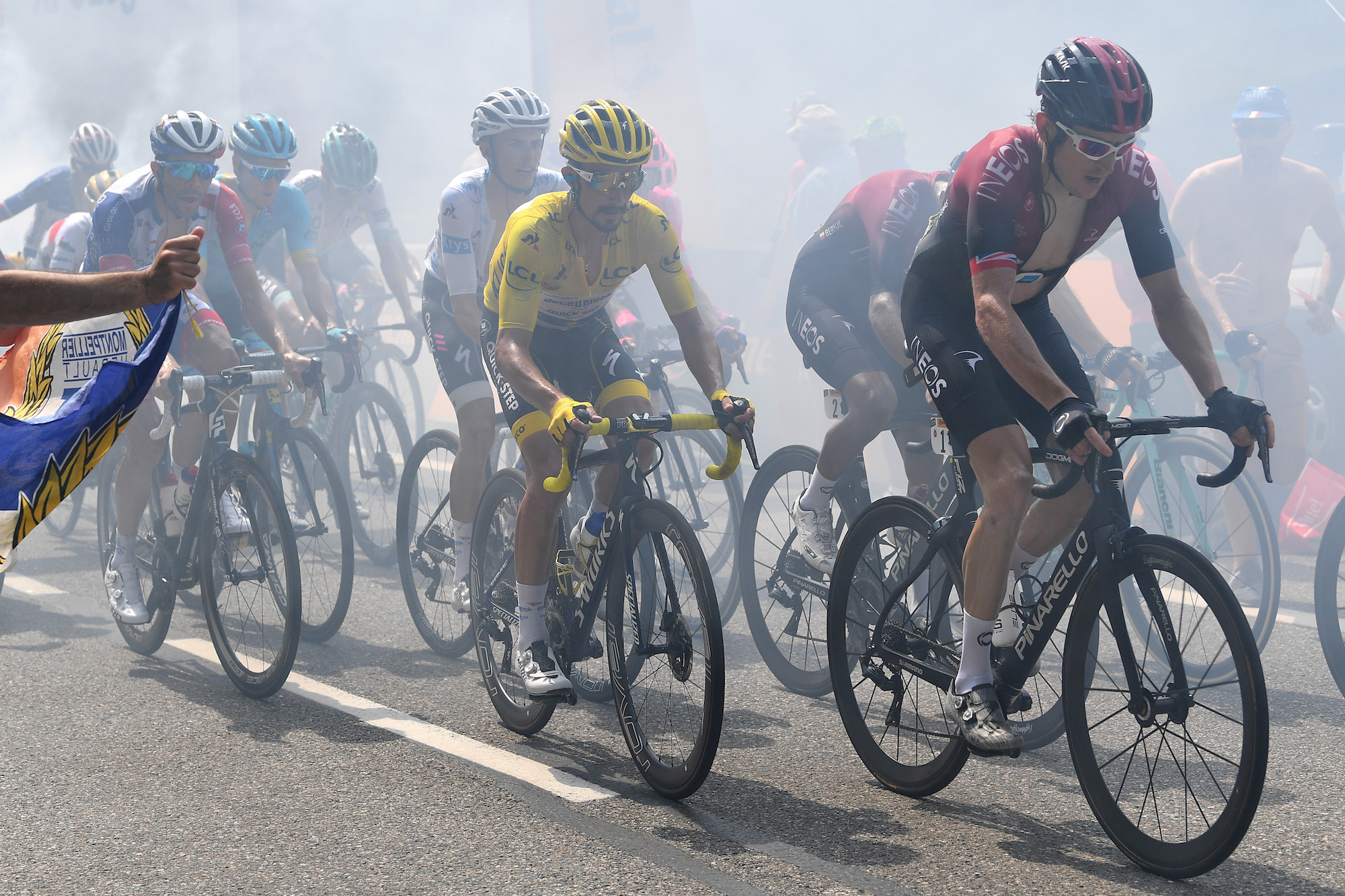
The latest race content, interviews, features, reviews and expert buying guides, direct to your inbox!
You are now subscribed
Your newsletter sign-up was successful
Is this the best Tour de France in recent years? That’s a definite yes.
But the beauty behind that is the way in which the excitement and drama so far has come from an accumulation of factors to touch every nerve, rather than one key focal point.
>>> Sir Dave Brailsford reveals why he thinks this year's Tour de France has been so breathtaking
I don’t think I’m alone in saying I’m desperate for the race to resume on Tuesday in Nîmes, and here’s some of the reasons why.
No pre-race favourites
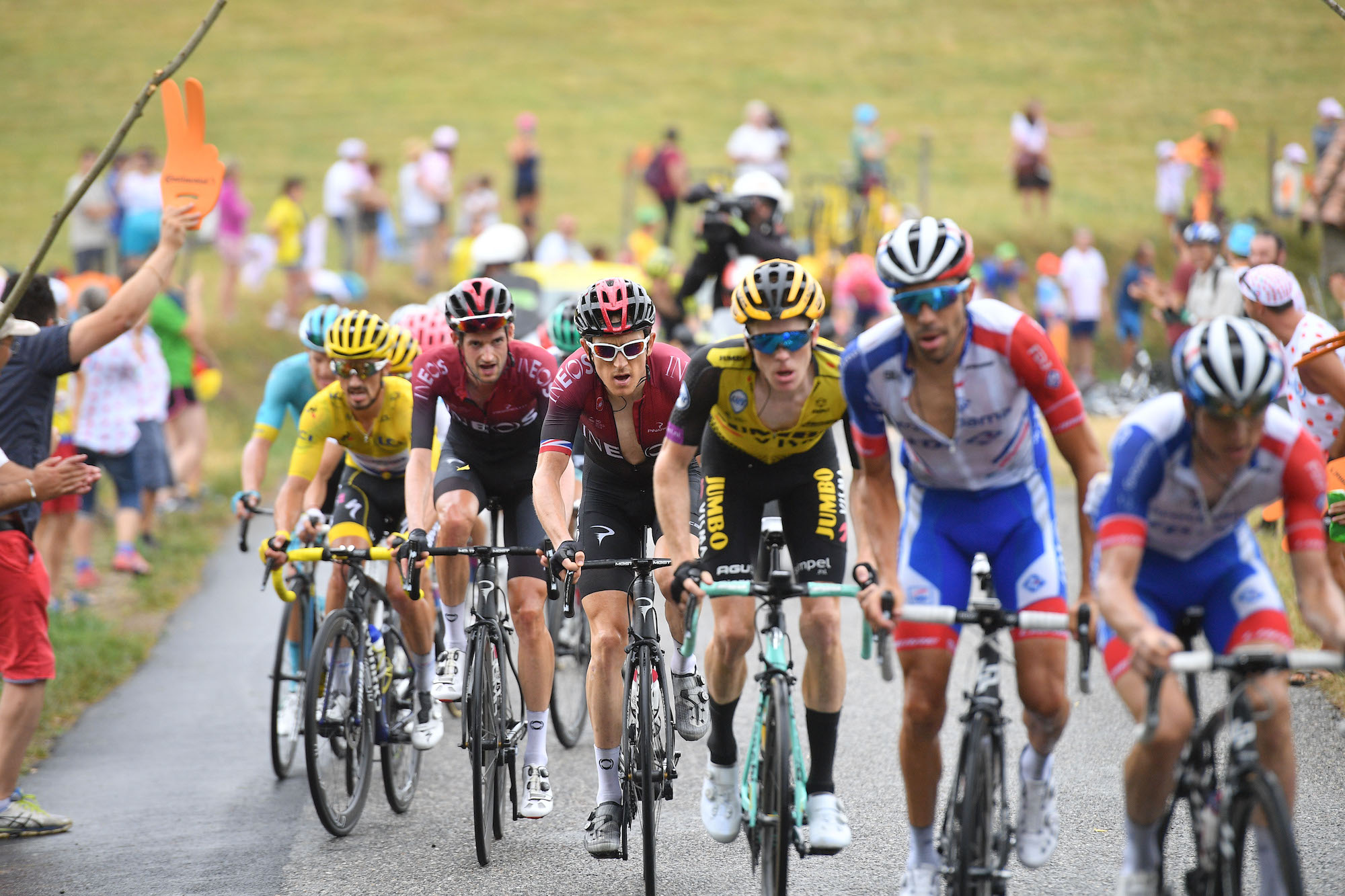
Six months ago, talk of the Tour was revolving around four-time winner Chris Froome (Ineos) or rising GC force Tom Dumoulin (Sunweb). However, both were taken out of the race by injury at the last minute. While seeing stellar athletes denied the chance to compete due to injury is not something to wish on anyone, the absence of the two favourites has been to the benefit of the Tour.
In the absence of Froome and Dumoulin, our June ‘genuine pre-race contender’ lists were as long as Daniel Oss’s hair. With an element of uncertainty around Geraint Thomas’ (Ineos) form after a quiet build to the Tour, riders such as Jakob Fuglsang (Astana), Thibaut Pinot (Groupama-FDJ), Richie Porte (Trek-Segafredo) and Steven Kruijswijk (Jumbo-Visma) were given a genuine hope of capturing the yellow jersey rather than setting their strategies on a race for the podium.
The latest race content, interviews, features, reviews and expert buying guides, direct to your inbox!
Hope and belief inevitably inspires greater performances, and that level playing field has made the racing open and dynamic rather than cagey and defensive.
That’s in stark contrast to the last six years, where Froome was an almost guaranteed bet before the Tour, or dare I say it, the early 2000s when that guy from Texas was unstoppable.
Riders went into those Tours thinking ‘how can I beat that guy?’, whereas this year, they started the race thinking ‘what do I do to win?’
No single dominant team
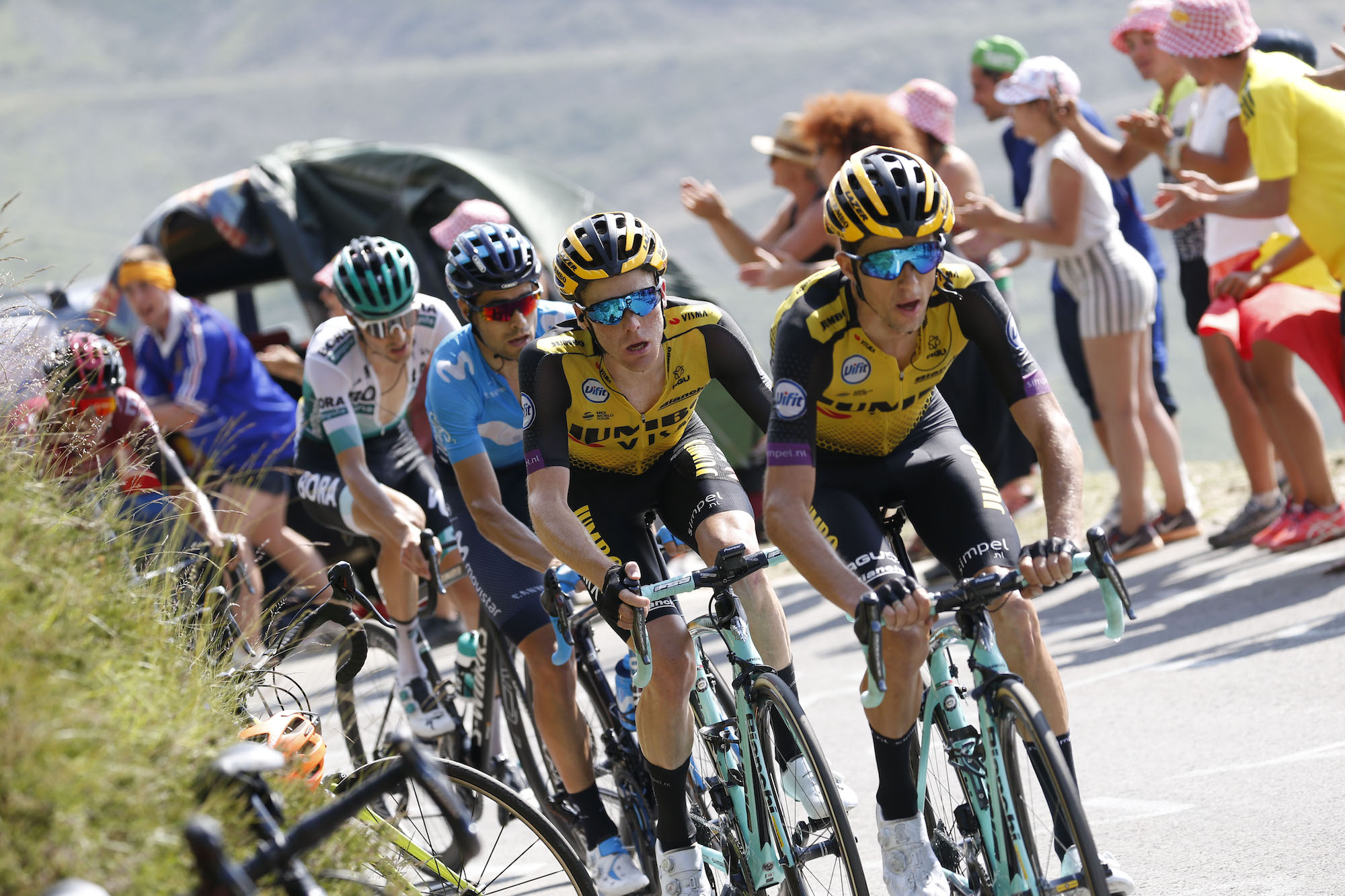
One of the lasting memories of the last seven Tours has been a line of four or five black and blue Team Sky jerseys shepherding the yellow jersey through the mountain passes, stifling the action. No other team was anywhere near asserting such control and Sky had their way.
This year however, no single team has been dominant in the decisive summit finishes. Groupama-FDJ and Jumbo-Visma have been the closest thing this Tour has had to a dominant force, but they’ve been only able to support their leaders in ones and twos as opposed to the mob-handedness that Team Sky could boast. And what’s more, the support afforded to Pinot and Kruijswijk respectively hasn’t been guaranteeing success, but merely been giving them a push in the right direction.
Seeing riders largely scrapping mano-a-mano, separated from team-mates, has been what made this weekend’s racing in the Pyrenees so breath-taking – seeing Julian Alaphilippe (Deceuninck-Quick-Step) isolated before cracking in the stage to Foix, or six riders from different teams entering the final 500m of the Tourmalet lined across the road eyeing out a sprint has added so much drama.
A French yellow jersey

When the home nation has a figure to back, the race becomes even more a fervent celebration of all things French, and all the accoutrement of the tour shine brighter.
On stage three Julian Alaphilippe became the first Frenchman to wear a yellow jersey since Tony Gallopin in 2014. When he surprised everyone by limiting his losses on the first summit finish of the race at La Planche des Belles Filles and then sprinting to time trial success, there seemed a legitimate hope he could become the first home winner since Bernard Hinault in 1985.
With a genuine hope for the home fans to cheer, the climbs have been packed with fans day-to-day, all stage long, rather than there just being a crowd on the summit finishes. There’s been more hay bail artwork, French flags, face-painted kids, and general goodwill around the race.
Romain Bardet (Ag2r La Mondiale) has made the podium twice in the last three years, but there was less a sense of fervour around him as he never seemed likely to actually move into yellow. Having a Frenchman in the yellow jersey on July 14 was the kind of thing that makes a French fan’s year.
The GC in the balance in the final week
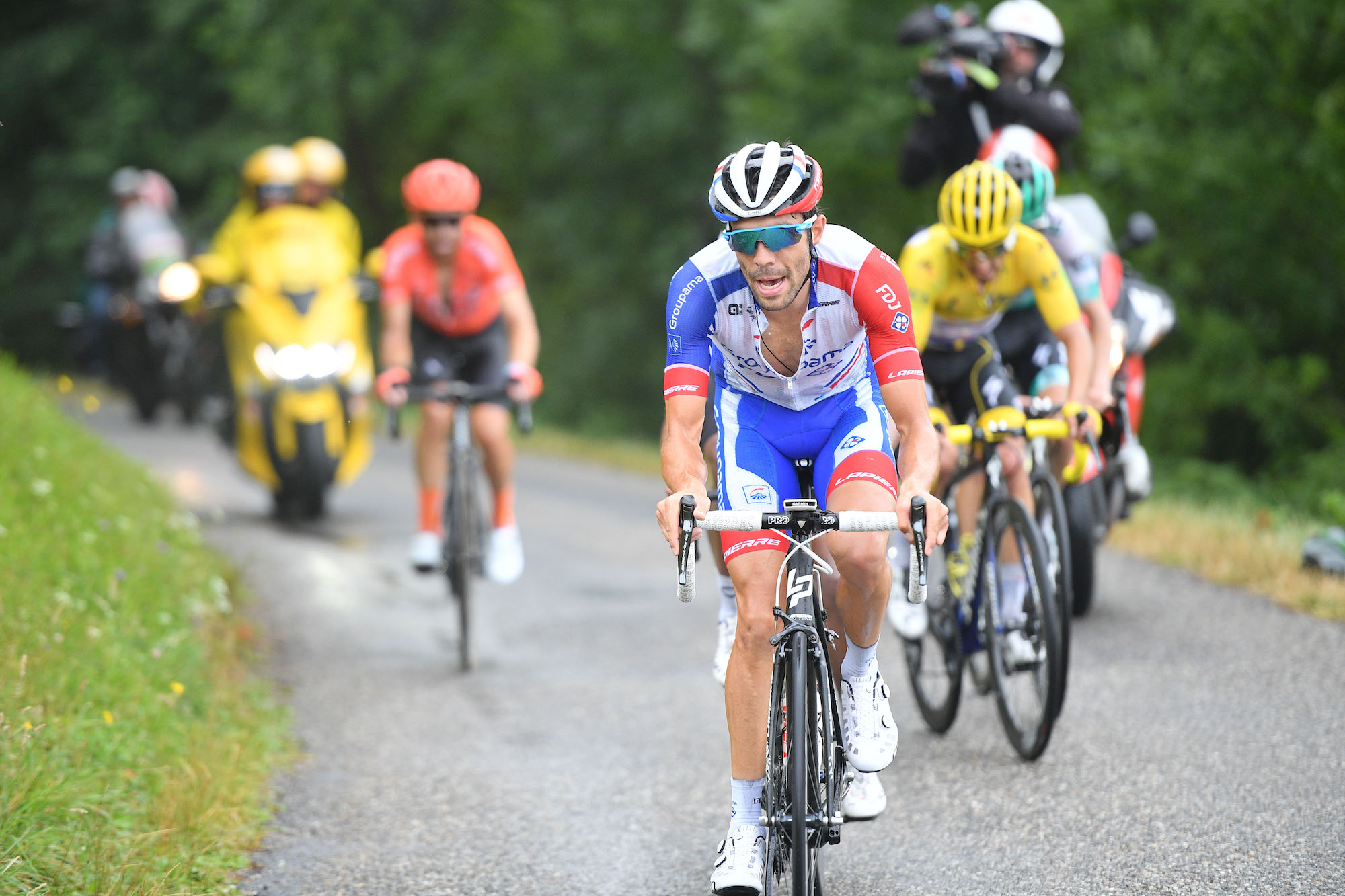
With six stages to go, three of which are genuine ‘GC days’, the race is still finely balanced. In the past, the early mountain stages have more or less dictated the final pecking order, for example when Geraint Thomas took successive victories on stage 11 and 12 in the Alps in 2018, or when Froome took the yellow jersey with ‘that’ descent to Bagnères-de-Luchon on stage eight in 2016, and tightened his stranglehold on the lead with every successive stage.
>>> Geraint Thomas says ‘bring it on’ to French rivals in final week of Tour de France 2019
This year, the race heads towards the Alps just as Alaphilippe’s form looks on the decline, something that the high mountains is likely to expose further. Contrastingly, Pinot and Thomas are in the ascendancy, but have a lot of ground to gain on the Frenchman. And waiting quietly in the wings, consistently and patiently ticking by stage after stage, is the threat of Kruijswijk and his accomplished mountain domestiques.
I’m not a betting man, and I certainly won’t be changing that by placing a bet on who will be wearing the yellow jersey in a week’s time.
First class sprint field
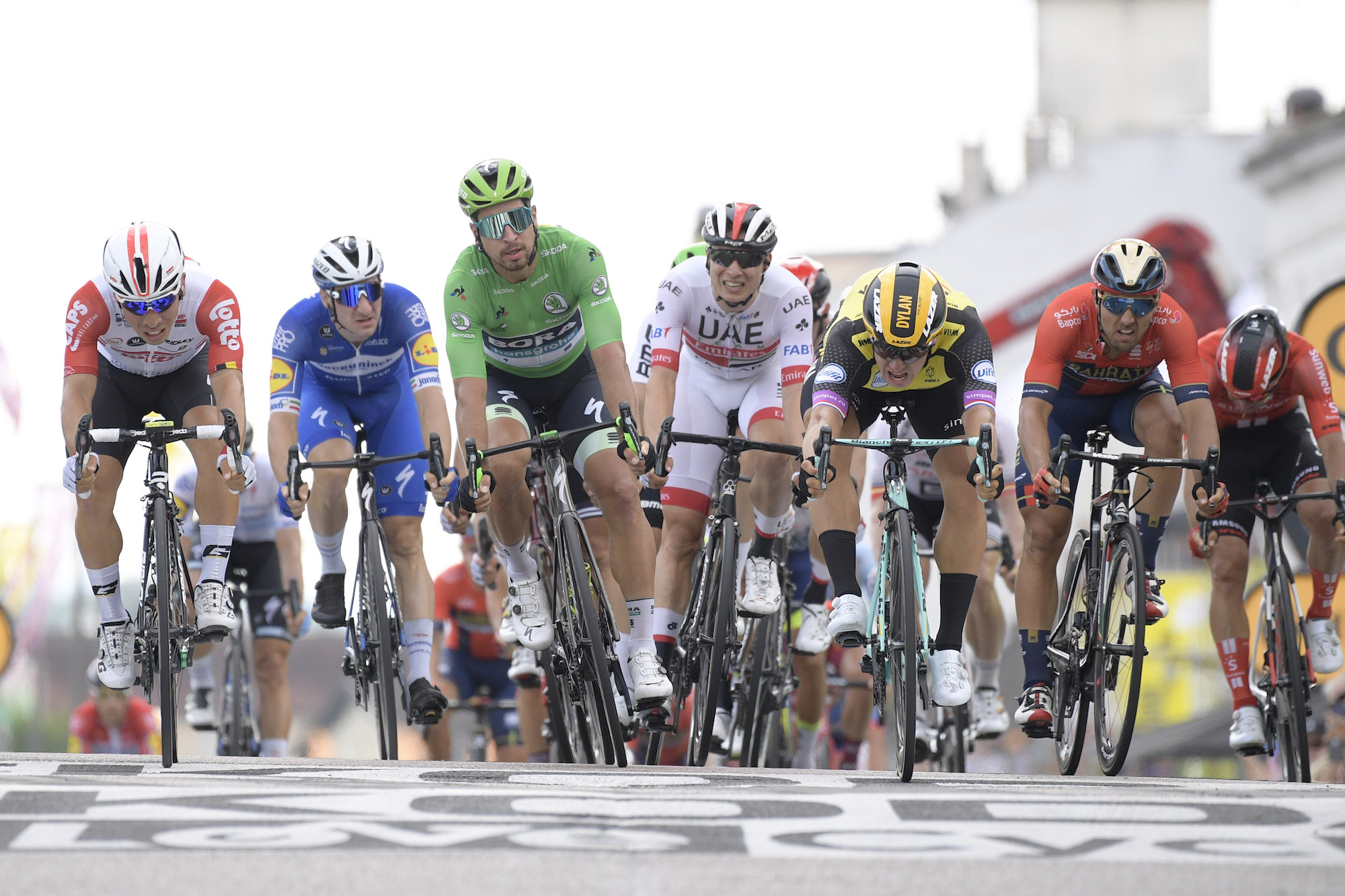
We’ve had six sprint or uphill sprint stages, and six sprint winners – sometimes not even by a bona fide sprinter. Caleb Ewan (Lotto-Soudal), Wout van Aert, Dylan Groenewegen (both Jumbo-Visma), Peter Sagan (Bora-Hansgrohe), Elia Viviani (Deceuninck-Quick-Step), heck, even Mike Teunissen (Jumbo-Visma) have all come out with the fastest finish.
With two sprints left this year, and with sprinters of the prowess of Alexander Kristoff (UAE Team Emirates) and Sonny Colborelli (Bahrain-Merida) yet to step on the top of the podium, it wouldn’t be a surprise to see the eight sprints of the Tour won by eight different riders. In past editions, we’ve typically had one dominant fast man - think back to Marcel Kittel in 2014 and 2017, or Mark Cavendish in 2016 and 2010 – and that added a sense of inevitability to some of the already dull flat stages of the past.
Add to that the fact that this year’s sprint wins have largely been scrappy, opportunistic affairs, with riders using their own wit and race-craft to take victory rather than being slingshotted there by a leadout team.
This change seems to be a part of a wider shift in the current generation of sprinters toward relying on their own skill and kick rather than placing their fate in the hands of a leadout team, and that makes it more compelling a watch.
Against-the-odds breakaways and unexpected action
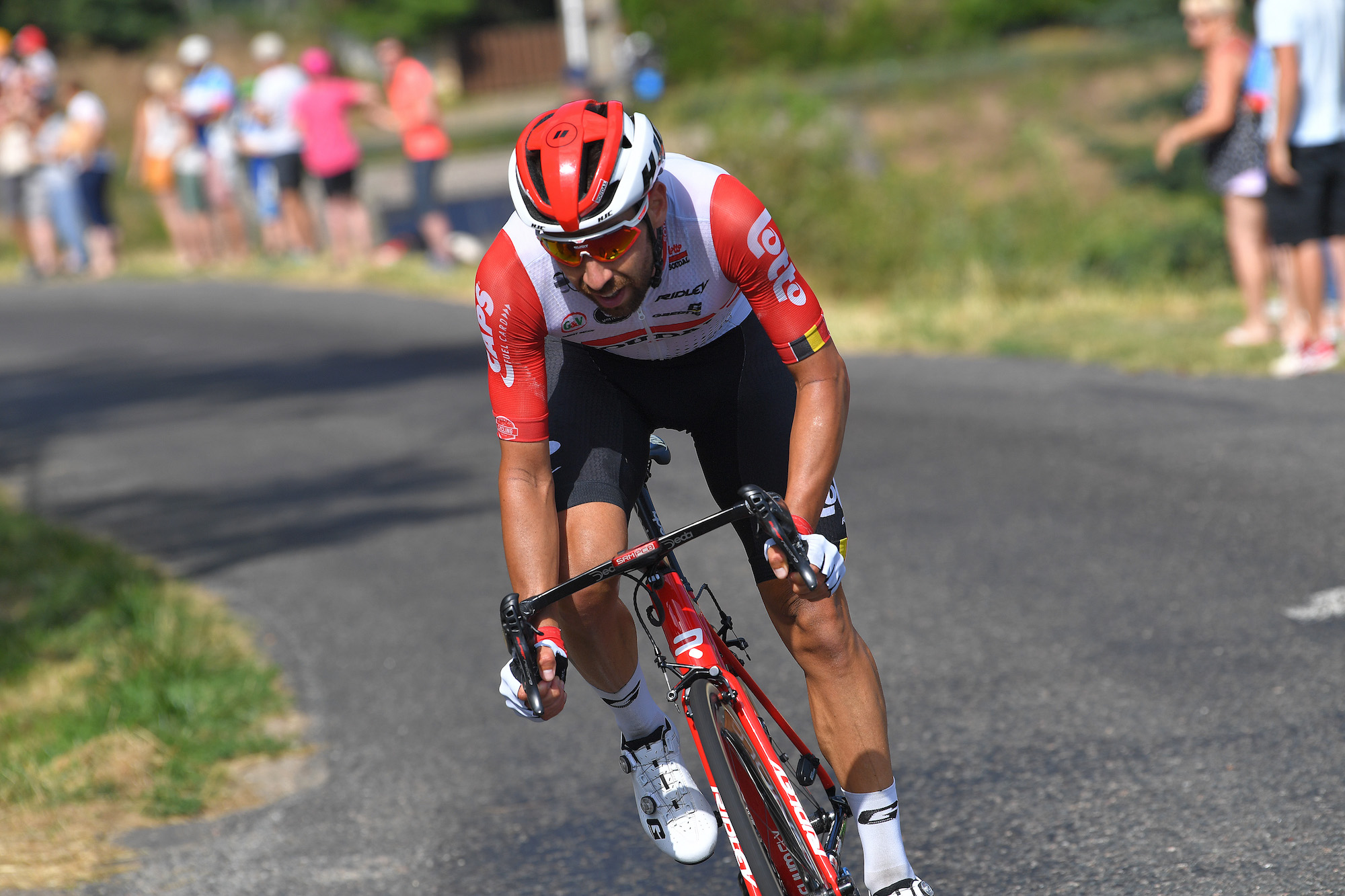
If you don’t love Thomas De Gendt (Lotto-Soudal) a little bit and have posters of him all over your wall after his incredible stage win on stage eight, then you have no heart. Seeing the Belgian baroudeur hold off a dramatic late chase by Alaphilippe and Pinot having dropped all his companions from the day-long breakaway was scintillating.
The way De Gendt won by six seconds after the best part of 200km out front shows how the race has been one to always tune in to.
You can’t write off a snoozy sprint day or ‘inevitable doomed breakaway’ as a foregone conclusion – think also to stage nine when the race blew apart in crosswinds, or even stage one, where the hot favourite Dylan Groenewegen was taken out of sprint contention by a late crash.
The Tour this year feels more chaotic than ever before. A lot of that can be attributed to twists of fate and the absence of one clear favourite and associated team to control the race.
However the way in which race boss Christian Prudhomme has designed the course to constantly challenge the riders with day-on-day changes in the format of stages has also added something. The riders’ first chance to get in a consistent ‘groove’ of similar stages doesn’t come until the Alps, and ironically, I’m sure they’re not going to be looking forward to the prospect of three back-to-back monster mountain days.
Swings in fortunes
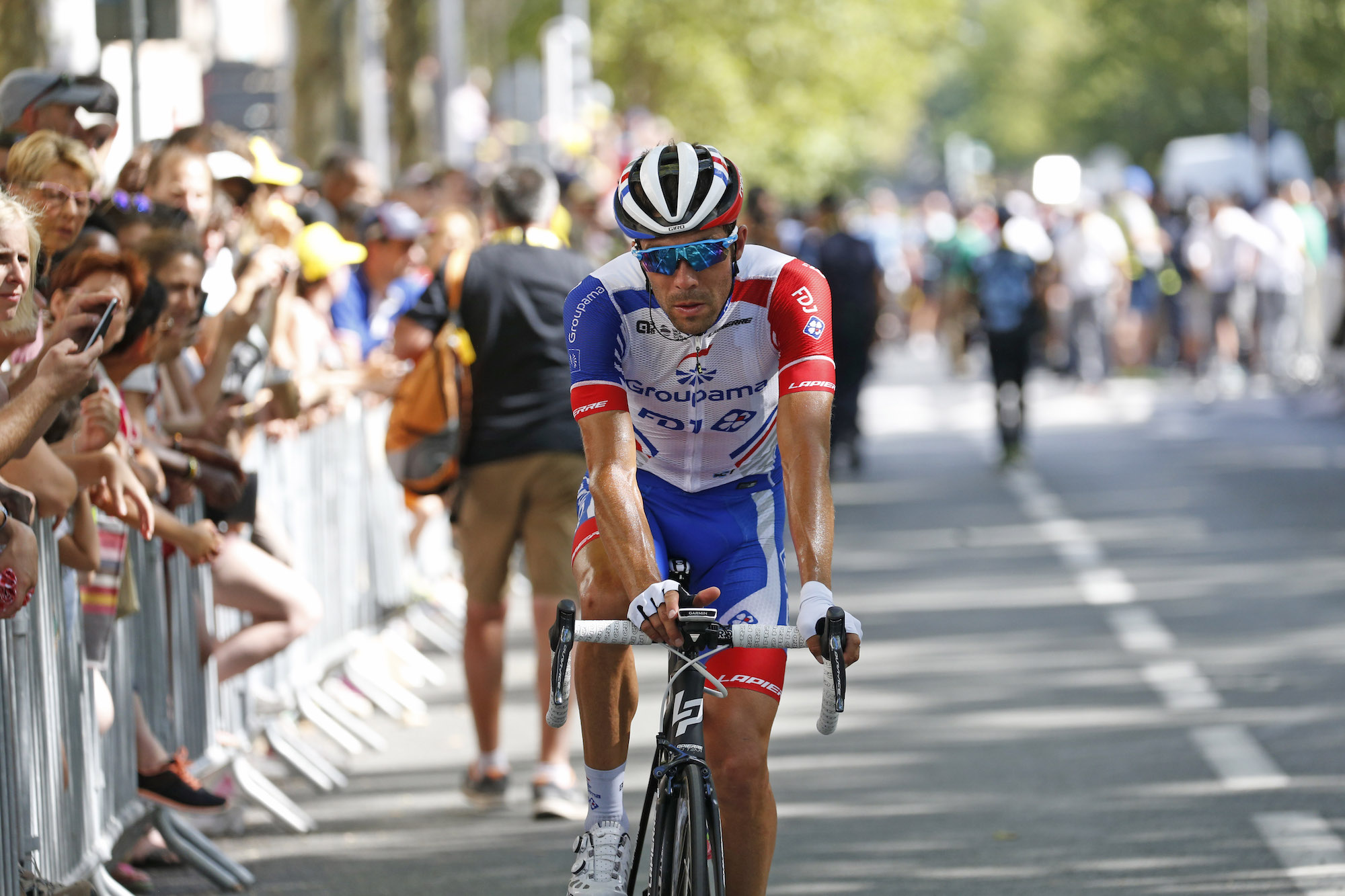
This Tour is playing out like the finest series of Peaky Blinders or Game of Thrones, with unexpected twists and turns every day. For stage after stage, Alaphilippe defied everyone’s expectations to hold on to the yellow jersey, notably in the time trial on Friday’s stage 13. And although he is now showing signs of weakness, he has a rest day followed by a sprint day to recover and regroup.
Meanwhile, Ineos have been surfing highs and lows – robbed of a team time trial win after a day in the hotseat on stage two, then riding high as the crosswinds in stage 10 saw several favourites lose time, then seeing chinks in Thomas’ armour and tactical indecision in the Pyrenees.
Similarly, Pinot’s journey has swung from anger and despair at losing 1-40 in just one stage, to rampaging through the mountains to gain all that time back.
The peaks and troughs each rider seems to have been going through has enabled their characters to shine through, humanising them and enabling us to empathise. Pinot’s anger and passion after losing time in the crosswinds, Alaphilippe’s tears on gaining the yellow jersey on stage three, Thomas’ stalwart resolution to keep fighting. It reminds you these guys are like us.